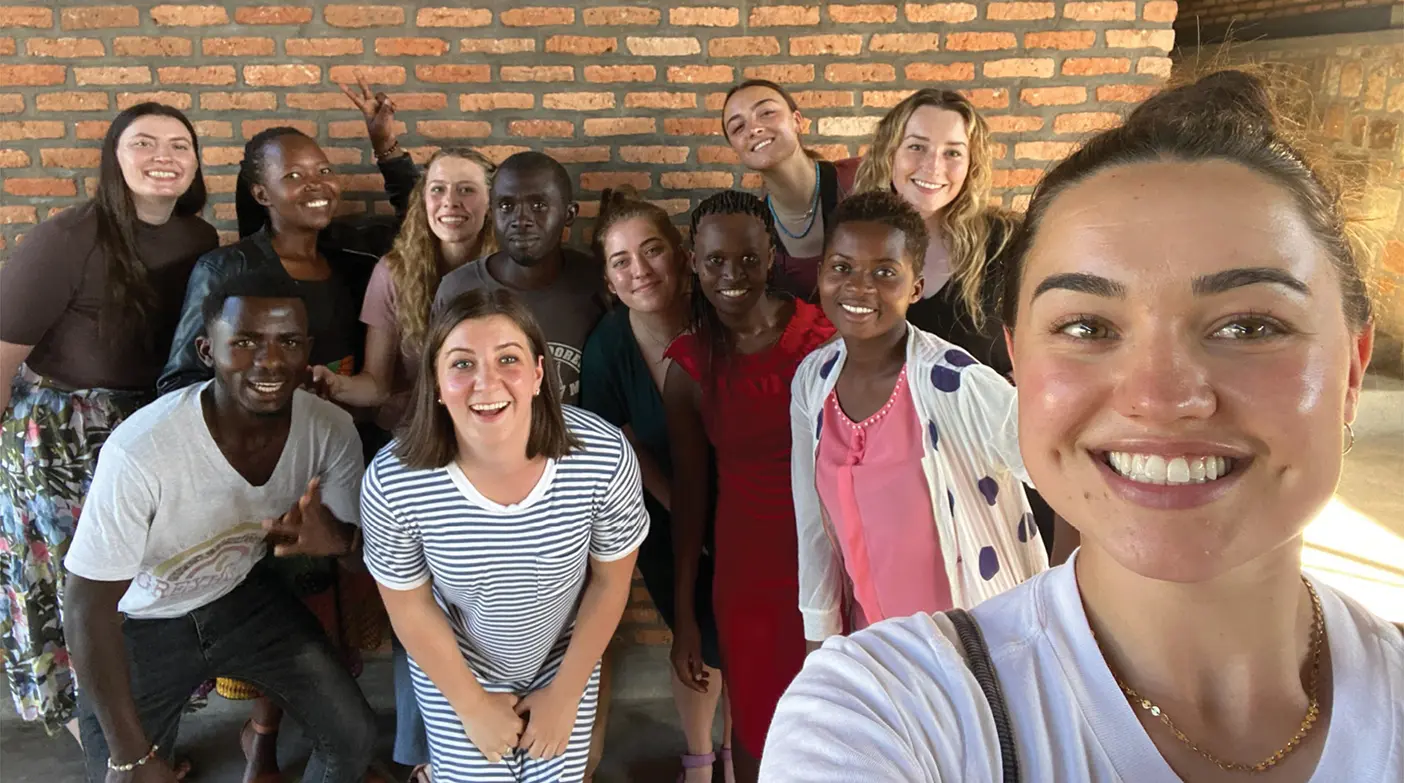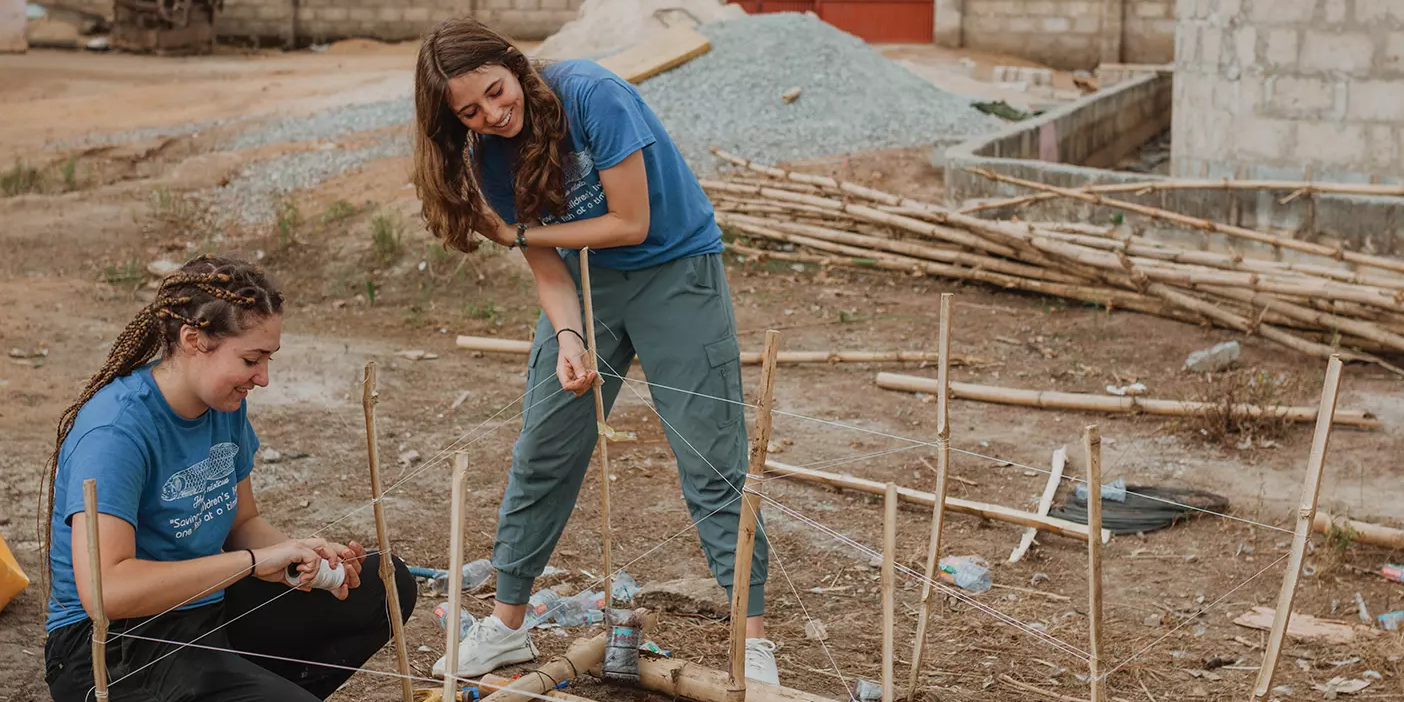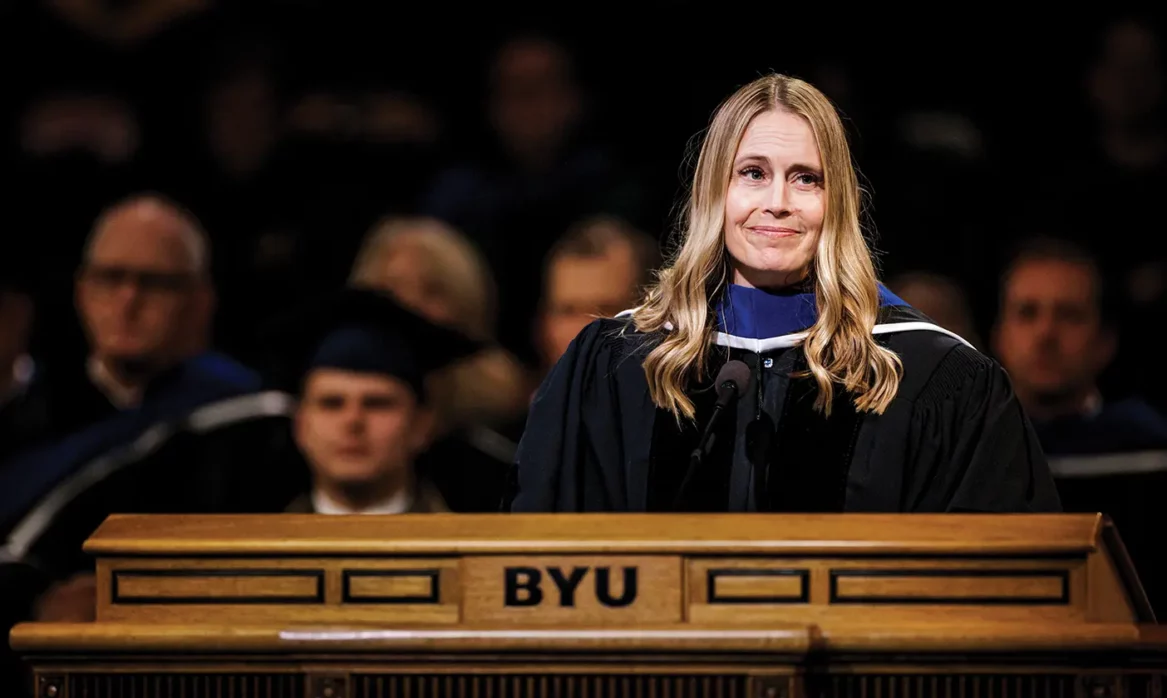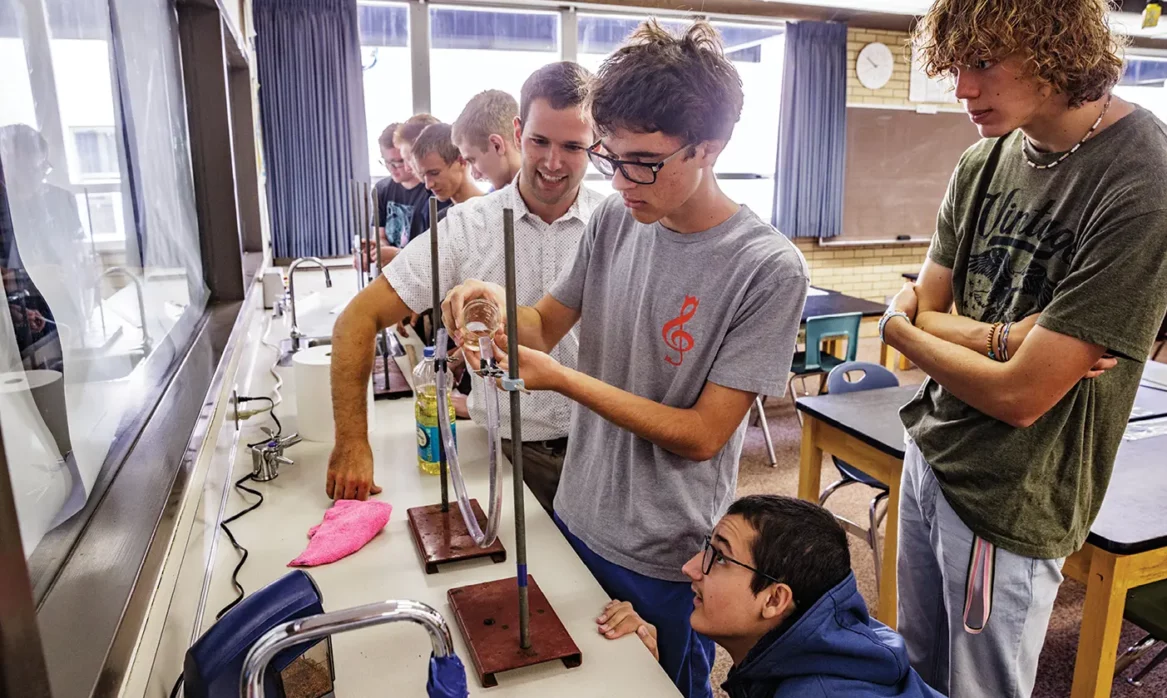
Women in Rwanda frequently supplement their families’ subsistence farming by selling handcrafted items locally for 60 to 70 cents apiece. But a meal in Rwanda still runs close to three or four US dollars.
“They can spend two hours [working] and not be able to buy a meal,” says Mackenzie L. Reid (’24), a sociology senior who traveled with other students to Rwanda to study the problem as part of the BYU Sociology Department’s Project Evaluation and Assessment Team (PEAT).
They went in partnership with Ethik, a startup founded by alumna Melissa C. Sevy (BS ’04, MPH ’09) that maintains close ties with the Marriott School’s Ballard Center for Social Impact, which supplemented donor-supported PEAT grants with additional donor funds to support students on the research trip. Through Ethik, women in Rwanda access a global market where their products sell for six or seven dollars each. Ethik partners with nearly 3,000 artisans in more than 15 countries. “Now that I have this job,” Alodie, a Rwandan artisan, told the startup, “I can pay the school fees for my two children.”
To strengthen Ethik’s local impact, BYU students traveled in May to Rwanda to test a survey for artisans and managers; the new tool is designed to help Ethik’s partner collectives establish equitable working conditions. PEAT director Scott R. Sanders provided mentoring and prepared students for this independent research trip.
Discussing the tool with locals revealed assumptions in the survey questions. “In the United States we see workplace expectations a certain way,” sociology student Karsyn D. Britsch (’24) says—but expectations differ in Rwanda. Artisans, for example, are paid per piece rather than per hour, and seasonal schedules vary widely. Many women work in their homes.
For Britsch, the research was about learning in person from those directly affected by the issues she studies. “We had to go to [Rwanda] in person” to see the local impact, she says. “I saw the value of projects where you can see what’s happening on the ground.”
Thanks to You
26,269 alumni and friends of the university gave to BYU in 2022, funding scholarships, research, grants, and more.
3,434 students from 189 majors participated in Ballard Center–based activities in 2022.
$150,000 has been awarded by the Ballard Center’s Social Venture Academy to student teams in 2022.
12,205 BYU students benefited from inspiring-learning experiences in 2022.
78% of students graduate with two or more high-impact BYU learning experiences.












